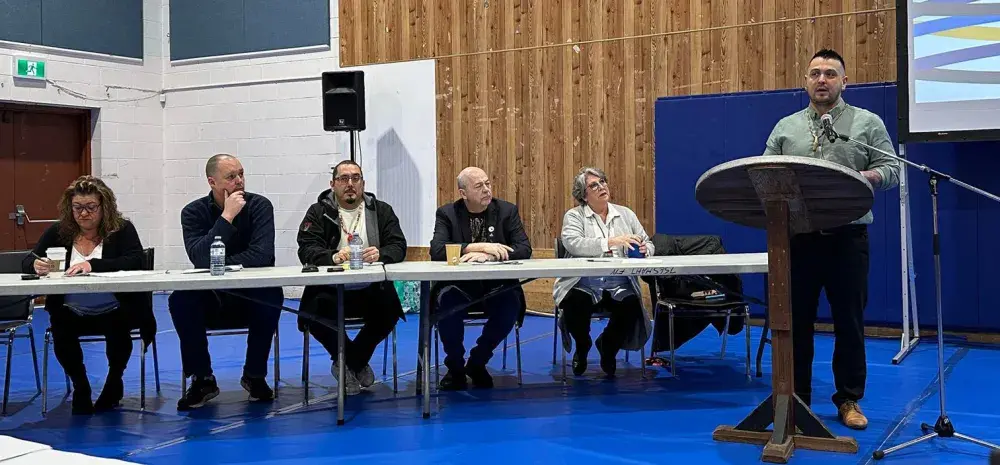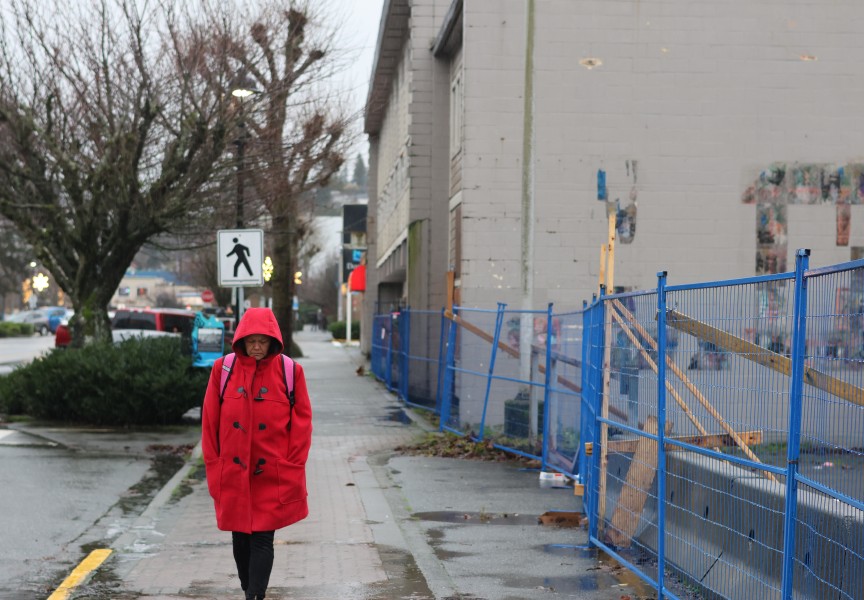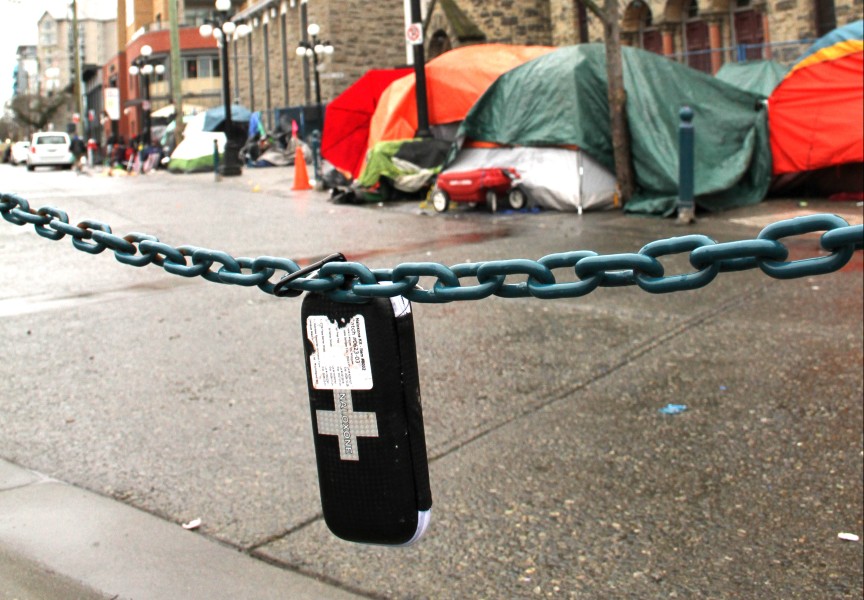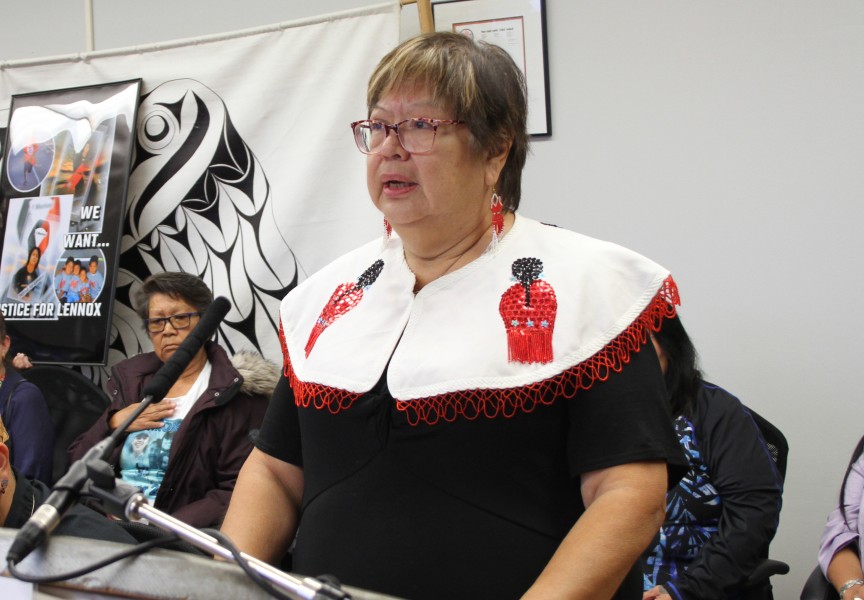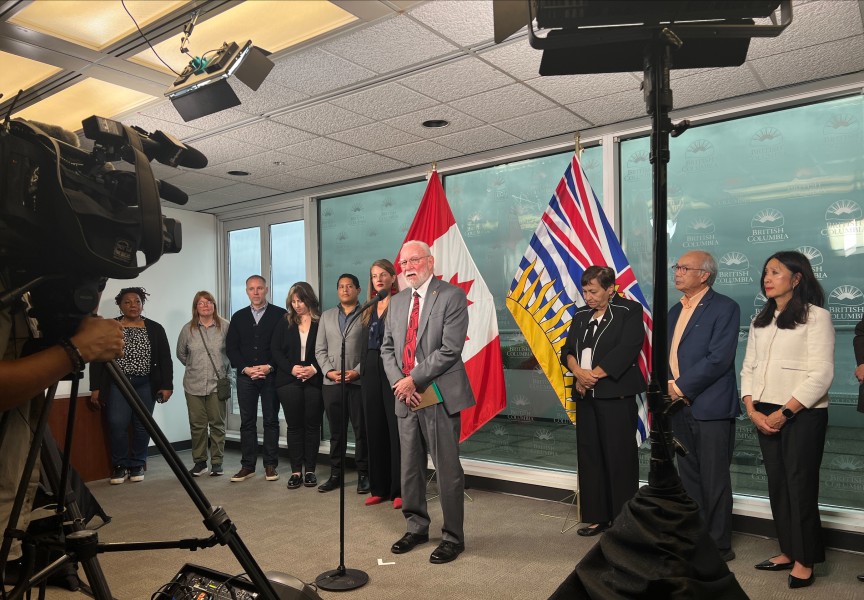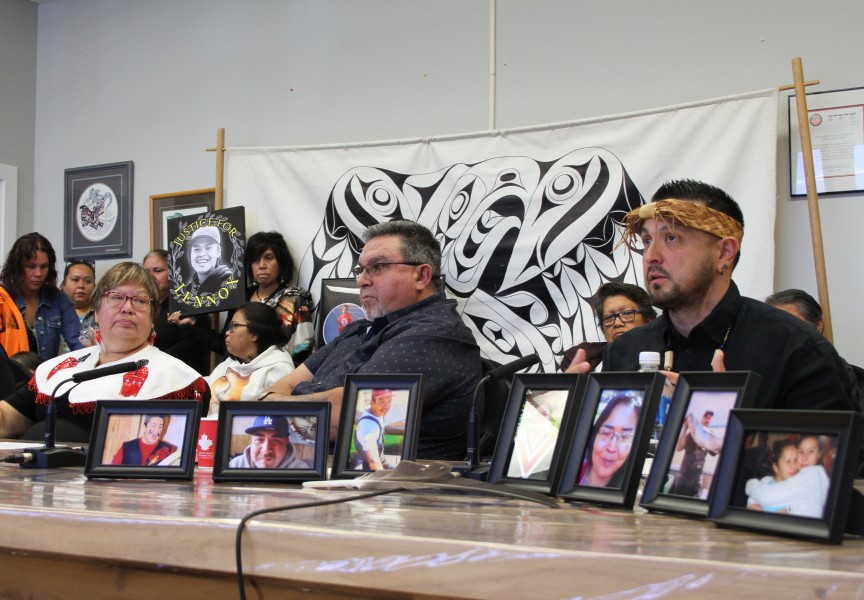On Jan. 31, Maht Mah’s filled with Alberni Valley organizations and community members for the unveiling of a four-pillar strategy to combat the toxic drug crisis in the region.
At the gathering the Tseshaht First Nation, in partnership with Port Alberni’s Community Action Team and Kuu-us Crisis Line Society, proposed their plan, which includes advocating for a fully funded, inclusive detox and recovery facility.
“This isn't just an Indigenous issue, this isn't just a Port Alberni issue, or a B.C. issue, or a Canadian issue; this is a human issue and it deserves all of our thoughts, our minds coming together,” said Ken Watts, Tseshaht’s elected chief councillor.
He added that this document provides a clear way forward among frontline workers, organizations, and governments, first starting with a coalition that will advocate and lobby for its implementation.
The strategy is infused with recommendations and concerns from organizations and community members gathered from a two-day meeting held at Maht Mah’s in March of 2023. The strategy highlights 11 priority actions under four pillars: people, places, programs, and prevention.
“It doesn't make sense to do one just for [Tseshaht], and doesn't even make sense to do one just for Nuu-chah-nulth, it makes sense to do one here for the Alberni Valley for all of us and for all of our community members, for all those that are struggling, hopefully preventing those from struggling in the future,” said Watts.
The strategy includes advocacy for an “urgently needed” fully funded detox and recovery facility in the Alberni Valley, with aims for the facility to be “inclusive, innovative, timely, and barrier free”, including eliminating user fees.
This aligns with a call from the Nuu-chah-nulth Tribal Council in April 2022 for an around-the-clock “rapid access addiction clinic” and certified detox centre somewhere in Nuu-chah-nulth territory. That call came on the sixth anniversary of the public health emergency, in a year that Port Alberni saw double the fatalities by illicit drug use to the provincial average.
“I'd be really excited to know that's a reality, because two years ago, it wasn't,” said NTC Vice-president Les Doiron of the detox and treatment facility proposed the new four-pillar strategy.
Doiron noted that more funding is needed to create recovery avenues for people.
“The lineups to try and get into the facilities are very lengthy, that's why you can't get in right away,” he said. “They want to go to detox and [they] can’t, then they’re probably going to keep using.”
Doiron lost his nephew, Charles Leslie Alexander Doiron, to the toxic drug crisis two years ago.
“Charles is remembered as Charles,” said Doiron, adding that he will be remembered by his family and friends as more than a victim of overdose. “[He was] handsome, funny, brutally strong, quick witted, [and] sarcastic.”
Toxic drugs are now the leading cause of death for people aged 10 to 59 in B.C., and the Alberni-Clayoquot region has some of the highest death rates in the province. In 2023 Alberni-Clayoquot saw 37 unregulated drug deaths, making the region's death rate 102.8 per 100,000.
“If this whole strategy gets implemented, and we get the resources to do the things under people, places, programs and prevention… I think it'll reduce those numbers, we won't be hopefully one of the worst in the province anymore, we’ll be one of the better ones,” said Watts, adding that it takes everybody to come together.
Watts shared a declaration for organizations to pledge support of the proposed strategy.
“Anytime we were having these engagements or working on the strategy, or even presenting today, I feel like I wear many of those members and those families on my shoulders,” said Watts. “They're on my shoulders and carrying them into this work, and especially those that are no longer here.”
“But for our community if we can implement this I think it'll eventually improve the quality of life for all of our people and address the heart of the issue as well,” he added. “I hope that our community is proud that we have a plan and strategy.”
“It means a lot watching the initiative that Tseshaht is taking,” said Doiron, who was at the two-day forum in March.

